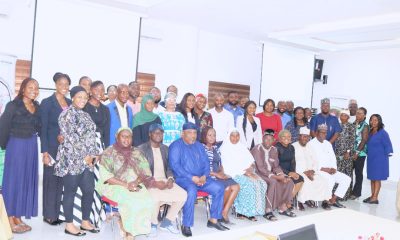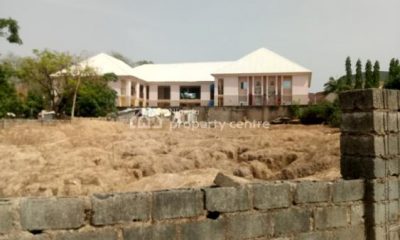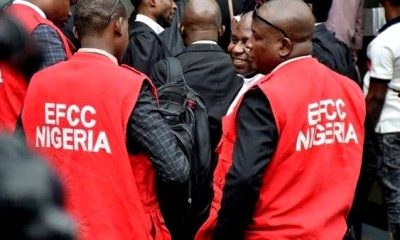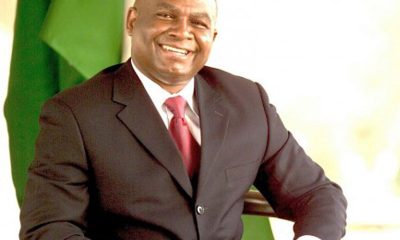NEWS
The Rise of Ritual Killings Amidst Declining Moral Values.

Rituals, as defined by the Cambridge Dictionary, are a set of actions or words performed regularly, often as part of a religious ceremony.
The Oxford Dictionary defines killing as the act of causing death, especially deliberately.
By these definitions, ritual killing can be understood as the deliberate act of taking another person’s life as part of either a religious or supernatural practice.
Disturbed by the rising cases of ritual killings in Nigeria, the House of Representatives in 2020 called on the Federal Government to declare a state of emergency to curb the trend.
The then Deputy Minority Leader, Toby Okechukwu, also urged the then Inspector General of Police, Usman Alkali Baba, to “take urgent steps to increase surveillance and intelligence gathering” to curb the menace through arrest and prosecution of perpetrators.
Additionally, the National Orientation Agency (NOA) was tasked with initiating a nationwide awareness campaign to address the issue.
However, three years later, ritual killings have not only persisted but have seemingly become more frequent, particularly among young people.
According to the National Bureau of Statistics, over 150 ritual killing cases -often linked to youths seeking quick wealth– were recorded in just six months.
These alarming incidents have raised concerns about the moral decay and future leadership of Nigeria.
Similarly, statistics from the Nigerian Police paint a grim picture of the crisis:
On Nov. 6, in Imo, a pastor was reportedly caught attempting to kill a woman after already murdering another and removing her genitals.
In Kogi, a 20-year-old man was arrested on Sept.4 for killing a 19-year-old university student and removed some of her body parts.
On Dec. 22, in Ogun State, a 45-year-old suspected ritualist, was found with a fresh human head and dismembered body parts of a female victim in Abeokuta.
In Cross River, a 29-year-old man, allegedly killed his mother, shaved her hair, and dumped her body in a well.
On Aug.10, Police in Oyo State arrested eight suspected serial ritual killers and recovered three mutilated unidentified female bodies.
In September in Lagos State, a 16-year-old boy lured a four-year-old child into a bush, strangled him and removed his intestines, and private organs.
While on Oct. 1, in Kwara, police discovered the corpse of a teenage girl with her two eyes removed in Ilorin.
Stakeholders have identified several key factors contributing to the rise in the orgy of ritual killings including:
Among these, is poverty and unemployment factor. They said the economic crisis had driven many young people to desperate and criminal acts.
They similarly said the get-rich-quick mentality, where the glamorisation of sudden wealth often portrayed in the social media, had the propensity of pushing individuals to seek supernatural means of acquiring money.
According to them, the weak law and failure of security agencies to swiftly investigate and prosecute offenders have emboldened criminals.
The stakeholders also listed the factor of societal decadence where some traditional and religious leaders either remained silent or had become complicit in these practices.
Most importantly, they attributed the breakdown of family structure, resulting in the lack of proper parental guidance to the moral decline among youth.
Security expert, Mr Seyi Babaeko, Managing Director of Absolute Security and Advance Protocol Ltd., described the rise in ritual killings as a reflection of deeper socio-economic and cultural issues.
“The desperation for wealth, belief in supernatural influences, and erosion of moral values have fueled this menace,” he said.
Badeko urged government to among others strengthen the criminal justice system for swift prosecution of offenders.
“Government needs to intensify intelligence gathering and surveillance to dismantle ritual killing networks.
“It should launch public enlightenment campaigns to debunk the belief that human sacrifice brings wealth, as well as prioritise job creation to reduce the desperation driving individuals toward crime.”
Another security expert, Mr Christopher Oji, emphasised that ritual killings, particularly among cyber fraudsters (popularly known as Yahoo boys) had become disturbingly normalised in the Nigerian society.
“You see a 17-year-old boy driving a N30 million car, and nobody questions his source of income,’ he said.
He blamed government negligence and societal indifference for the rising cases, adding that many missing persons in Nigeria were likely victims of ritual killings.
Oji urged the Economic and Financial Crimes Commission(EFCC) to scrutinise the sources of wealth among young people.
“The EFCC should go beyond cybercrime investigations and begin questioning the sudden wealth of individuals, especially youths.”
The Chief Operating Officer of DOHS Care Foundation, Mrs Ololade Ajayi, took to her X (formerly Twitter) handle. @OlolaTohRhea, to highlight how ritual killings often targeted women and girls.
“This reflects violent commodification of female bodies. Women are often lured by individuals intending to either use their genitals or breasts for rituals,” she stated.
Ajayi called for stricter laws and justice for victims, emphasising that femicide(the intentional killing of women due to gender motives) must be addressed urgently.
A cleric, Pastor Victor Oke of the Assemblies of God Church, Oyobo, attributed the rise in ritual killings to the loss of respect for human life.
” Human life is sacred. No one has the divine mandate to take another person’s life for ritual purposes,” he said.
Oke urged Nigerians to report suspicious activities to law enforcement agencies and work collectively to end the menace.
The stakeholders agree that addressing ritual killings requires a multi-pronged approach.
They urged government’s urgent intervention in the areas of strengthening law enforcement, judicial reforms and job creation.
They similarly called on traditional and faith leaders to at all times, publicly condemn ritual killings and emphasise ethical success.
They also urged parents to instill strong moral values in children to discourage illegal means of acquiring wealth.
According to them, social media have the responsibility of using their platforms to actively counter content that glorifies sudden and unexplained wealth.
All in all, stakeholders agree that addressing the root causes of ritual killings in Nigeria requires a collective effort, with both the government and individuals playing a crucial role in finding lasting solutions.(NANFeatures)
NEWS
Immunization: Stakeholders raises alarm over 2.6m zero dose children in 2020
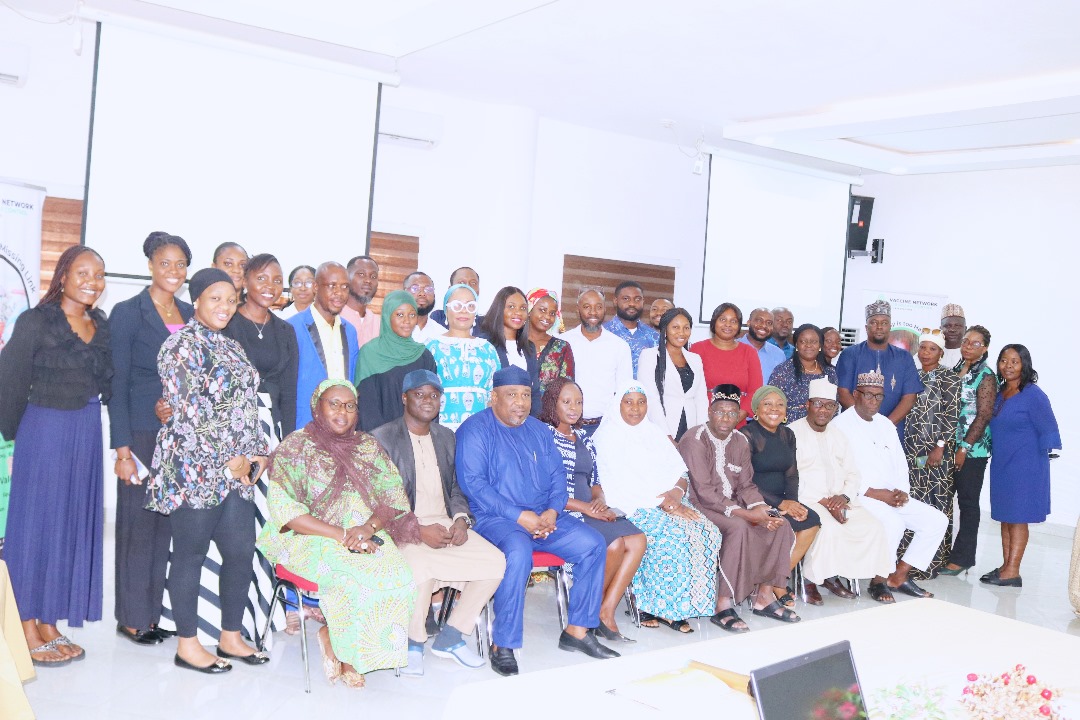
By Laide Akinboade, Abuja
Stakeholders in the Health sector, have raised alarm over
2.6 million children in Nigeria being zero-dose, in 2020, meaning they had not received a single dose of any vaccine in the immunization schedule.
Chika Offor, CEO of Vaccine Network for Disease Control, who was one of the speakers, at a recent immunization budget analysis workshop, raised the alarm in Abuja.
The theme for the workshop is, “Sustaining Immunization through Strong Primary Healthcare: Empowering Advocacy and Partnerships for Long-Term Vaccine Financing at the Subnational Level,”.
She lamented that, Kano State has the highest number of zero-dose immunization cases in Nigeria, with 15 local government areas (LGAs) identified as high-burden, according to Save the Children.
According to her, “The 2021 Multiple Indicator Cluster Survey/National Immunization Coverage Survey (MICS/NICS) revealed that in Northern Nigeria, an estimated 65% of children are categorized as zero-dose, with the North East and North West regions accounting for 27% each. Bauchi State in the Northeast has the second-highest zero-dose rate at 35%. These statistics indicate that Nigeria faces significant challenges in achieving the Immunization Agenda (IA2030) target of fully vaccinating 90% of eligible children by 2030.
“Gombe State: Gombe State is estimated to have a significant burden of zero-dose children. Recent reports indicate that Gombe accounts for a substantial proportion of the zero-dose child population in Nigeria, with estimates placing the number around 53,000 and routine immunization coverage for key antigens like DPT1 and DPT3 hovering around 30%.
“Kano State: As the most populous state in Nigeria, Kano faces immense challenges in reaching all eligible children with vaccines. Despite improvements during targeted campaigns, significant coverage gaps remain, with overall routine immunization rates reported at approximately 40% for DPT3, indicating a high number of zero-dose children.
Jigawa State: Jigawa State struggles with optimal routine immunization coverage, recording about 32% for DPT3. Despite efforts to strengthen healthcare systems, a notable number of zero-dose children persist, with estimates indicating that 45,000 children have not received any vaccinations..
“Bauchi State: Bauchi State grapples with low routine immunization coverage, estimated at 38% for DPT3. The state faces challenges related to infrastructure and community acceptance, with approximately 60,000 children classified as zero-dose, highlighting the need for targeted interventions.
“Adamawa State: Adamawa State faces significant challenges in immunization coverage, contributing to a notable burden of zero-dose children. Recent estimates indicate that around 47,000 children in Adamawa have not received any vaccinations. Routine immunization coverage for key antigens, such as DPT3, is reported to be approximately 35%, highlighting a critical need for targeted interventions to improve access and uptake of immunizations. The state’s healthcare infrastructure and community engagement efforts are essential to addressing these gaps and ensuring that all eligible children are vaccinated”, she said.
While Ekiti State has one of the highest number of coverage with over 90% immunization coverage, setting an example of what is possible even within the Nigerian context.
The stakeholders therefore agreed that it is imperative for the three tiers of government and citizens to prioritize domestic resource mobilization to safeguard the country’s immunization progress and prevent the collapse of its Primary Health Care system.
Chika who lamented over the growing vulnerability of the poor, especially as many PHCs in the Federal Capital Territory (FCT) remain shut due to local government staff strikes.
“Do you know that many of the primary health care centers in the FCT are closed?” she asked. “The LGAs are on strike, and because of that, the health centres are shut. Now let’s think what happens to the poor and vulnerable who cannot afford private hospitals?”
Offor commended the resilience of participants who travelled from various states some risking insecurity in the North to attend the workshop.
“I want to celebrate my brothers and sisters who came by road from the North despite all the insecurity. They risked their lives to be here because they believe in strengthening the health system,” she said, drawing applause.
She emphasized the need for Nigerians to take ownership of their health systems and end overreliance on foreign aid.
“Let us come with our passion. Let us come with the desire to make that change to learn. We cannot continue depending on external funding. It’s time we looked inward to finance our own health solutions,” she said
Her sentiments were echoed by Chika Nwannko, Head of Programs at the Vaccinate Health and Disease Program, who argued that the COVID-19 pandemic should have taught Nigeria the importance of self-reliance.
“At the beginning, if nothing taught us anything, COVID did. Despite all the aid from the global net, they prioritized their people and rightfully so. This is our country. We must begin to look inward,” Nwannko said.
She shared stories of grassroots innovation, including one from Imo State, where 30 women, after receiving small grants, raised ₦500,000 to purchase blood pressure monitors and weighing scales for their community PHC.
That’s ownership. That’s sustainability,” she noted.
In Abuja’s Kabusa community, Nwannko highlighted how Beelback Kitchen, a local restaurant, renovated and equipped a PHC through its corporate social responsibility initiative.
What are we talking about? A restaurant is financing a PHC. So yes, anyone can do it. Philanthropists, CSOs, private individuals. It’s time to shift from dependency to partnership and participation.”
According to her, the new approach emphasizes structured collaboration between civil society, government, media, and the private sector with memoranda
memoranda of understanding and clear operational frameworks to ensure sustainability.
As Nigeria continues its efforts to eliminate zero-dose children and expand equitable healthcare, stakeholders at the forum agreed on one thing: the future of public health must be homegrown.
Yes, international donors are welcome. But sustainability? That must be Nigerian,” Nwannko concluded.
Earlier , Muhammad B. Abdullahi, Deputy Director of Primary Healthcare in Jigawa State, said they had drastically reduced the number of zero-dose children through State Outreach Days and mobile immunization teams.
“Our Masaki Project, which uses local food to combat malnutrition, is another community-driven initiative making a difference,” he added.
The Masaki Project trains volunteers to teach families how to use locally available food to prevent malnutrition, identify at-risk children early, and refer severe cases for treatment.
NEWS
NPC Commissioner Designate Donates N55m Classrooms to Nasarawa Community
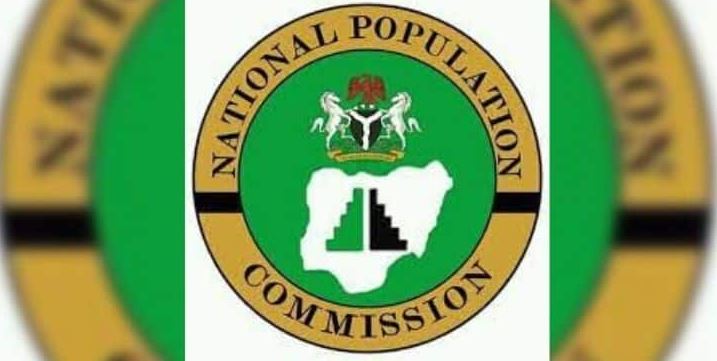
Dr Joseph Kigbu, newly appointed Federal Commissioner, National Population Commission (NPC) representing Nasarawa State, has donated a classroom block worth N55 million to the Barki Abdullahi (BAD) community, Lafia Local Government Area.
Kigbu inaugurated and handed over the project at the Roman Catholic Mission (RCM) Primary School to government on Friday in Barki Abdullahi.
He said that the donation was meant to give back to the community that made him what he had become in the society.
Kigbu, a former Federal lawmaker representing Lafia/Obi Federal Constituency in the House of Representatives, was recently appointed by President Bola Tinubu as a Commissioner to represent Nasarawa State at the NPC, but yet to assume office.
He explained that the structure consisted of three classrooms, an office, all connected to solar system, and national power grid.
“This is the school I attended and since God has blessed us, we must support the school and make it more conducive for learning.
“Students in our villages do not need to go to schools in cities before they use electricity to learn,” he added.
Kigbu said he had dedicated his life to serving humanity both in and out of public office.
He said: “Even before I was elected to the House of Representatives in 2011, I had a medical forum that offered free medical treatments to indigent people across the state.
“While in public office, there was no part of my constituency that I had not made a mark in terms of projects and empowerment.
“I gave them quality representation, and the free medical treatments are still ongoing in the state and other parts of the country.
“I have also completed the building of the multi-billion naira hospital for the poor in Azuba, Lafia.
“The hospital, equipped with state-of-the-art equipments, would begin operation in September 2025.
“The hospital is for the poor and services will be free of charge by the grace of God.”
He also used the opportunity to appreciate President Tinubu and Gov. Abdullahi Sule for his recent appointment as a federal commissioner to represent the state in NPC.
He further declared his intention to join the 2027 governorship race in the state.
Receiving the project, Gov. Abdullahi Sule represented by Mohammed Sani-Bala, Permanent Secretary, Ministry of Education, thanked the philanthropist for the gesture.
He described the project as special one that would go a long way to complement the effort of the government toward providing quality education in the state.
Similarly, Dr Aliyu Bello, Nasarawa State Chairman of All Progressives Congress (APC), appreciated the donor for his philanthropic efforts.
Bello congratulated Kigbu on his new appointment and called on other leaders to emulate him and give back to their communities. (NAN).
NEWS
BEDC Rejects Alleged Takeover Plot by Ondo Govt, Urges Respect for Regulatory Framework
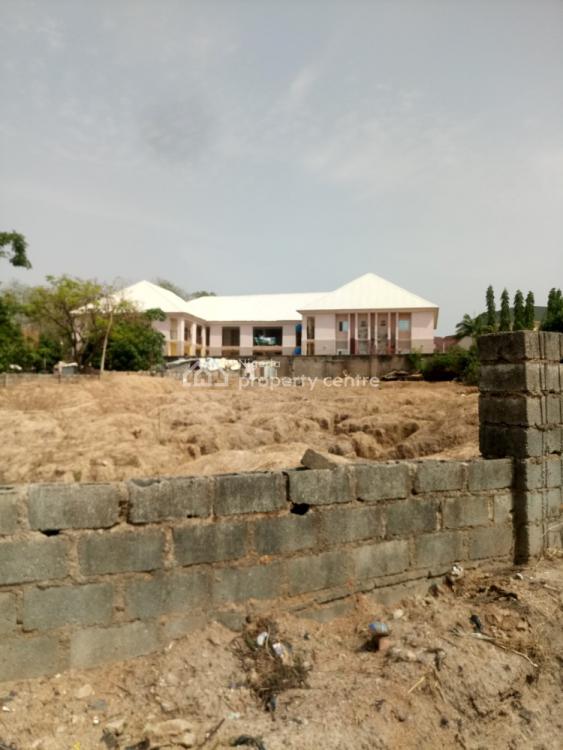
The Benin Electricity Distribution Company (BEDC) and its subsidiary, BEDC Electricity Ondo Limited (BEOL), have strongly condemned an alleged plan by the Ondo State Government to assume control of electricity distribution operations in the state.The condemnation was issued in a statement responding to the announcement by the Special Assistant to the Ondo State Governor on Power, describing the state government’s move as illegal, provocative, and disruptive to ongoing partnerships.
BEDC’s statement was released on Friday in Benin by its Chief Revenue Cycle Manager, Mr Collins Igwe.According to Igwe, while the Electricity Act 2023 empowers states to regulate their electricity markets, it does not authorise them to unilaterally take over distribution operations.BEDC stated that any such move would violate the joint communiqué reached after a strategic meeting between BEDC/BEOL and the Ondo state government aimed at addressing power challenges.“Any such move undermines the spirit of collaboration and mutual understanding agreed upon to resolve electricity issues in the state.“We have a legal mandate to operate in Ondo. This attempted encroachment is unacceptable,” Igwe said.He emphasised that the power supply challenges in Ondo were part of broader national issues, and reiterated BEDC’s commitment—through BEOL—to implementing long-term, sustainable solutions.“We are open to partnerships, but any approach must respect due legal processes and the agreements made in good faith,” he added.Igwe also explained that the jointly signed communiqué established a clear roadmap for collaborative solutions.He said it recommended the creation of a power supply committee to address electricity access in underserved and unserved communities through a mutually agreed framework.The company warned that any unilateral action or interference in its operations would constitute a breach of agreement and could disrupt electricity distribution services across the state.“The company reaffirmed that it remains the duly licensed operator in Ondo and will protect its infrastructure in line with Nigerian laws and regulatory standards.“We call on those currently attempting to interfere with our infrastructure to desist immediately to avoid legal consequences,” the statement said.Igwe further urged the public to disregard the controversial publication, describing it as misleading, unauthorised, and detrimental to ongoing collaborative efforts.He reaffirmed the company’s commitment to delivering improved electricity services in Ondo state, prioritising transparency, legal compliance, and community engagement.“We remain focused on constructive dialogue with all stakeholders to ensure sustained progress and stability in Ondo state’s power sector,” Igwe said.(NAN)
